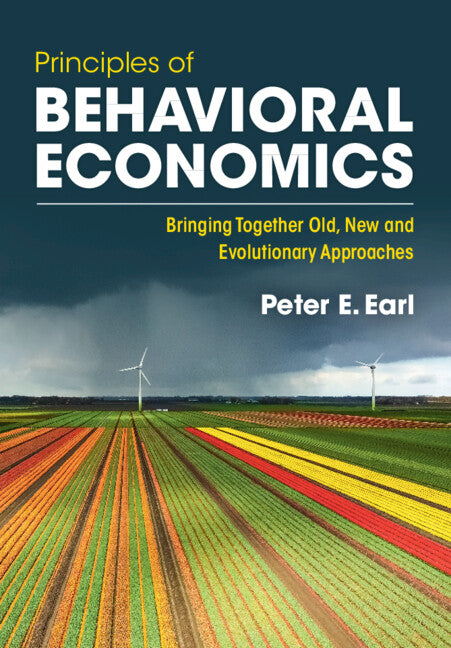Freshly Printed - allow 8 days lead
Couldn't load pickup availability
Principles of Behavioral Economics
Bringing Together Old, New and Evolutionary Approaches
Presents the ONE behavioral approach to economics: a grand synthesis of Old, New and Evolutionary behavioral approaches.
Peter E. Earl (Author)
9781009095891, Cambridge University Press
Paperback / softback, published 28 July 2022
500 pages
24.3 x 16.8 x 2.7 cm, 0.92 kg
'Behavioral economics has a rich history and thanks to the book by Peter Earl it has the potential for an even richer future. Whereas Old Behavioral Economics (OBE) shared a dissatisfaction with mainstream economics, New Behavioral Economics (NBE) sought to position itself squarely within the mainstream. This book creatively blends these approaches with a strong evolutionary emphasis. As a result, it lays the foundation for a broad range of research opportunities. Earl deserves great appreciation for this.' Esther-Mirjam Sent, Radboud University
This book is unique among modern contributions to behavioral economics in presenting a grand synthesis between the kind of behavioral economics popularized by Richard Thaler, earlier approaches such as those of the 1978 Nobel Laureate Herbert Simon, evolutionary psychology, and evolutionary economics from Veblen and Marshall through to neo-Schumpeterian thinking. The synthesis employs a complex adaptive systems approach to how people think, the lifestyles they build, and how new production technologies and products are gradually adopted and produce changes. Using a huge range of examples, it takes behavioral economics from its recent focus on 'nudging' consumers, to the behavior of firms and other organizations, the challenges of achieving structural change and transitioning to environmentally sustainable lifestyles, and instability of the financial system. This book will be of great interest to academics and graduate students who seek a broader view of what behavioral economics is and what it might become.
1. What is behavioral economics?
2. What motivates us?
3. Why is life so full of problems for us to try to solve?
4. How do we acknowledge problems and assess our options?
5. How do we deal with uncertainty and ambiguity?
6. How do we search for solutions to problems?
7. Why do some things matter more than others?
8. How do we choose?
9. How can firms and governments influence our choices?
10. What determines the productivity of an organization?
11. How does the competitive process work?
12. Are there any behavioral insights for macroeconomists?
13. Can we be happy without destroying the environment?
Subject Areas: Behavioural economics [KCK], Microeconomics [KCC]


